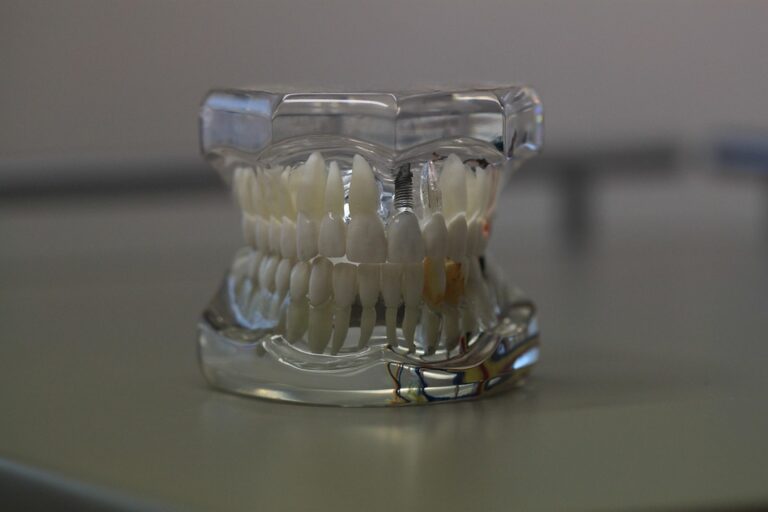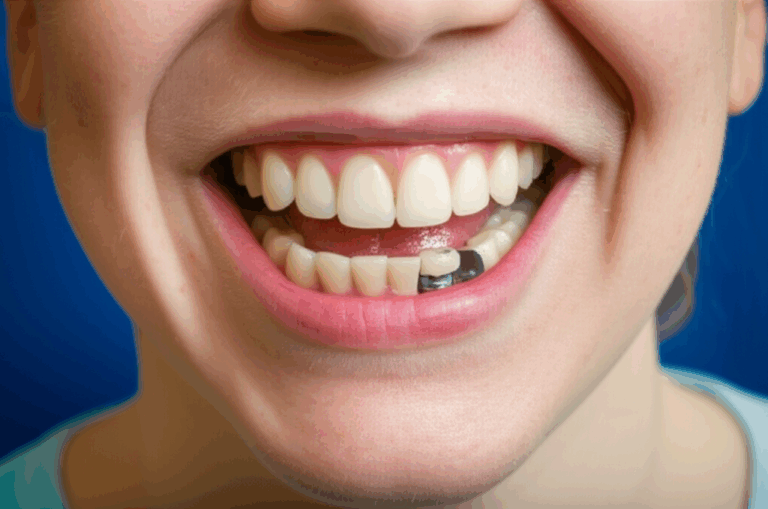
Does Humira Cause Dental Problems? Understanding the Oral Health Risks on Adalimumab
Everyone wants a healthy mouth with strong teeth and gums. If you use Humira (adalimumab) for an autoimmune disease, you might worry if this medicine can hurt your teeth or gums. This article explains the connection between Humira, your immune system, and your dental health in simple, easy-to-read language. You’ll see why it’s extra important to take care of your mouth, what side effects to look for, and what you can do to stay healthy while on Humira. Let’s get started and find out what’s really true!
Table of Contents
- What Is Humira and Why Do People Take It?
- Does Humira Directly Cause Dental Problems?
- How Does Humira Affect Your Immune System?
- What Kinds of Oral Problems Can Happen With Humira?
- Can Humira Increase the Risk of Infections in the Mouth?
- Does Humira Make Gum Disease Worse?
- Could Humira Lead to Cavities or Tooth Decay?
- What About Dry Mouth, Mouth Sores, or Bad Breath?
- How Should You Care for Your Teeth and Gums While On Humira?
- When Should You See a Dentist or Doctor?
- Frequently Asked Questions (FAQ)
- Key Takeaways: What to Remember
1. What Is Humira and Why Do People Take It?
I remember when my doctor first talked about Humira. I asked, “What does this medicine do, anyway?” In simple words, Humira is a prescription drug called adalimumab. It’s called a “biologic,” and it helps people with things like rheumatoid arthritis, Crohn’s disease, and psoriasis.
You may have heard of these illnesses. They make your own immune system attack parts of your body by mistake. That’s where Humira helps—it slows down the part of your immune system causing these problems. For a lot of people, that means less joint pain, less tummy trouble, or fewer skin rashes. But like every medicine, Humira can bring along other problems you may not expect.
2. Does Humira Directly Cause Dental Problems?
Many people ask, “Can Humira hurt my teeth or gums?” The short answer is: Humira usually doesn’t cause tooth problems directly. There isn’t strong proof that Humira itself causes gum disease or tooth decay.
But—and this is important—Humira changes your immune system. That means it can change how your mouth fights bacteria, heals sores, or handles infections. This can make it easier for mouth problems to start, especially if you already have gum trouble or take other medicines.
So, Humira can lead to more dental issues by lowering your body’s defenses—not by hurting your teeth right away.
3. How Does Humira Affect Your Immune System?
Think of your immune system as an army that guards you from germs. Humira blocks something called TNF-alpha—a messenger in your body. TNF-alpha helps your body fight infection and heal. When Humira blocks this, your body isn’t as fast at finding and fighting germs and fungi.
On one side, this means less swelling and pain when your immune army attacks your own joints or gut. On the other side, the “mouth gates” are not as well protected. Bad germs have a better chance of sneaking in and causing infections, especially in your gums and teeth.
4. What Kinds of Oral Problems Can Happen With Humira?
Let’s get into the details. What mouth problems do people on Humira see? Here’s what doctors and dentists talk about:
- Mouth infections (bacteria, fungi, or viruses)
- Gum disease (periodontitis and gingivitis)
- Dry mouth (called xerostomia)
- Tooth decay (cavities)
- Oral thrush (fungus infection in the mouth)
- Mouth sores or ulcers
- Slow healing after dental work
- Bad breath (halitosis)
Let’s look closer at each of these problems and what you can do.
5. Can Humira Increase the Risk of Infections in the Mouth?
When Humira lowers your immune strength, it’s kind of like leaving the door open for uninvited guests. For example, a common fungus infection called oral thrush (candidiasis) can take hold. You might notice white patches, soreness, or redness on your tongue, cheeks, or gums.
Here’s a simple table:
| Oral Infection | Symptoms to Watch For | Why More Common on Humira |
|---|---|---|
| Oral thrush (Candidiasis) | White spots, soreness, burning | Weaker immune defense |
| Gum abscess | Swelling, pain, pus | Harder for body to fight bacteria |
| Viral cold sores | Blisters, tingling, crusty bits | Slower recovery and may happen more |
If you see these things, call your dentist or doctor right away. Catching problems early means you can get the help you need before it gets worse.
6. Does Humira Make Gum Disease Worse?
Here’s what’s real: Gum disease is common for people with autoimmune illnesses even before starting Humira. When you’re on Humira, bacteria can grow more and infect gum tissue. You may notice gums that:
- Bleed easily
- Look swollen or red
- Feel sore
- Pull back from your teeth
- Smell funny (bad breath that sticks around)
- Make your teeth feel loose
Studies show that periodontitis (bad gum disease) and gingivitis are seen more often in people with weak immune systems. But here’s a twist—sometimes Humira’s power to stop swelling helps with gum puffiness. It all depends on how healthy your gums were to start and how well you clean your teeth every day.
Problem: Gum infections can sneak up fast and get serious without you knowing.
Agitate: If you leave it, you could lose teeth or find eating really hard.
Solution: See your dentist every six months. They can catch gum disease early and treat it before it’s a big problem.
Want to know more about dental diseases like gum disease? That link has tips to keep your mouth healthy.
7. Could Humira Lead to Cavities or Tooth Decay?
Saliva is your best friend for fighting cavities. It rinses away food, keeps acids low, and helps keep your teeth strong.
Some people who take Humira or other medicines have dry mouth. Sometimes their illness (like Sjögren’s syndrome) dries things out, too. When you don’t make enough spit, bad bacteria hang around longer and can rot your teeth, making more cavities.
If something tastes odd or your mouth feels super dry, talk with your dentist. They might suggest:
- Drinking more water
- Chewing sugar-free gum
- Using mouth rinses or fake saliva
Want more about how teeth and health connect? Here’s a helpful guide.
8. What About Dry Mouth, Mouth Sores, or Bad Breath?
Dry mouth isn’t just annoying—it can make eating, talking, and tasting harder. It also lets bacteria build up, because spit is your natural cleaner.
Mouth sores or ulcers can pop up. Sometimes it’s from biting or sore spots, or from infections, or even from the disease itself. Small, stinging mouth sores on your lips, cheeks, or tongue? Don’t ignore them. Usually, they heal on their own, but if they don’t go away, you need a doctor to look at them.
Bad breath (halitosis) happens from extra bacteria, dry mouth, or old food bits. It can be embarrassing and show that you may need help.
How do you fix it? Good mouth cleaning is key. And if you need special dental work, a china dental lab can help your dentist get the best fit for you.
9. How Should You Care for Your Teeth and Gums While On Humira?
This is where you’re in control! Keeping your mouth healthy isn’t hard, but it does mean daily effort. Here are my best tips I use and share with others:
Oral Health Tips for Humira Users
- Brush your teeth twice a day with a soft toothbrush and fluoride toothpaste.
- Floss every day. This gets rid of hidden germs and food.
- Use mouthwash. Pick one without alcohol if your mouth feels dry.
- Drink lots of water. It helps with dry mouth and washes away sugars.
- Chew sugar-free gum if your doctor says it’s okay.
- Eat healthy. Cut back on sugary snacks and drinks.
- Visit your dentist for checkups two times a year (or more if needed).
- Tell your dentist about all your medicines, especially Humira.
Professional dentist cleanings and checkups catch problems early. If you need dental work, like crowns, bridges, dentures, or retainers, make sure you get high quality. A good removable denture lab helps your dentist get the best fit for you.
10. When Should You See a Dentist or Doctor?
Not sure when to ask for help? Watch for these signs:
- Gums that bleed a lot, get big, or hurt
- Teeth that hurt, feel wobbly, or want to come out
- White spots in your mouth that don’t go away
- Mouth sores lasting more than a week
- Problems chewing, swallowing, or talking
- Bad breath that won’t go away
Problem: Waiting too long can make little problems turn into big issues—like losing teeth or bad infections.
Agitate: If you ignore pain, germs can spread and you could get sick.
Solution: Tell your doctor or dentist right away about new or worse mouth problems.
Need more tips on daily dental care? This big dental care guide has great at-home ideas.
11. Frequently Asked Questions (FAQ)
Q: Can I get dental work done while on Humira?
A: Yes, but always tell your dentist you’re taking Humira. They might suggest doing dental work (like pulling a tooth) when your body is stronger, or might give you antibiotics before certain treatments.
Q: Why do I keep getting mouth infections on Humira?
A: Humira can lower your immune power, so germs in your mouth grow easier. Clean your mouth well, and see your dentist when you see infection signs.
Q: Is dry mouth dangerous?
A: Dry mouth isn’t super dangerous by itself, but it can raise your risk for cavities and infections. Drink water, chew gum, and ask your dentist what else can help.
Q: Does Humira cause oral cancer?
A: No proof shows Humira causes mouth cancer. But seeing a dentist often means all problems (including rare ones) get found early.
12. Key Takeaways: What to Remember
- Humira does not directly cause tooth decay or gum disease, but it can make mouth problems more common by lowering your body’s defense.
- Look out for infections, gum disease, dry mouth, and mouth sores if you’re using Humira.
- Brush, floss, rinse, and drink plenty of water every day to lower your risk of tooth and gum problems.
- See your dentist every six months and always let them know about your medicines, especially Humira.








